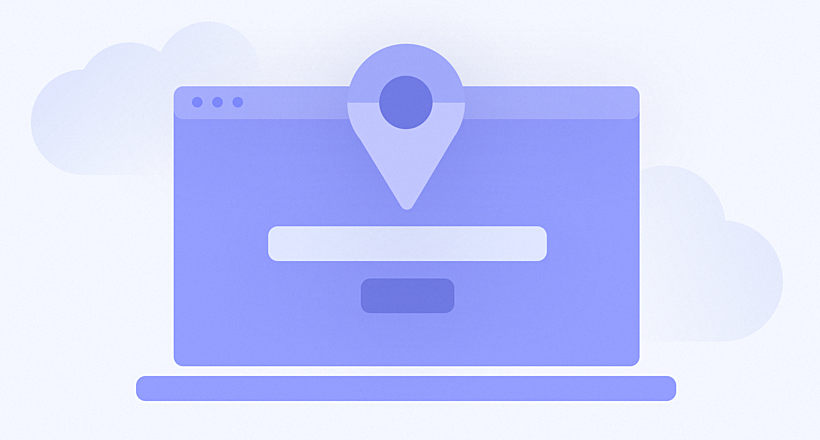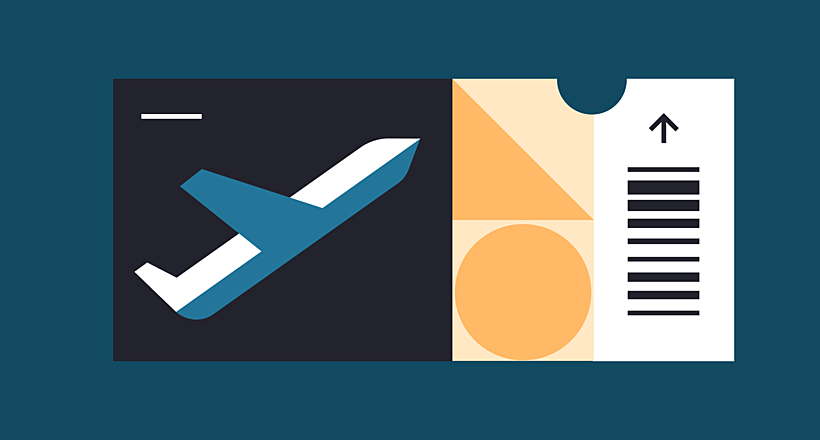10 January 2024
Travel Agency Website Development in 2024: Features, Tech Stack & Cost

Traveling is a trillion dollar market that has attracted numerous businesses, and new companies continue to enter it. Travel agency businesses are still popular and travel agency website development is still crucial. But they have to be proactive as never before to avoid lagging behind competitors, to secure new customers, and to retain existing ones. Forward-thinking travel agencies have recognized the importance of establishing their online presence in order to achieve these goals.
That’s why they look for reliable travel agency website developers to increase their customer reach and get more bang for the buck: sites advertise the business, they save time by providing information to visitors, and, unlike an agency, they work around the clock
In this blog post, we'll give you some handy tips on how to create a website for a travel agency.
The Basic Feature Set to Succeed with Your Travel Website
Let’s take a look at the core feature set that every travel agency website development process should include to nail the user interface and user experience so that you can make a sale.
- Progressive Web Apps (PWAs). Such apps have the usefulness of a native app but, when accessed through a browser, it does not require any downloading, which is a huge plus on conversion and usage ratio. The PWA web page can also be saved on the user’s home screen and used as a mobile app. Travel companies, using PWAs include Jumia Travel, Ola, Trivago, Wego.
- Google map integration. The feature helps to see available holidays laid out on a map with all the details of the destination selected with arresting images
- Search Filters. As there are different parameters involved in traveling, search filtering is always useful. The wider the filter range, the better. An advanced search should allow filtering results based on price range, booking policy, star rating, location, payment, available amenities, and others.
- Predictive search. It’s a drop-down list that pops up immediately while typing. It helps to avoid displaying a large list of results, finding results quickly, and also saves on typing if the user is using a device without a physical keyboard like a tablet.
- High-quality images. Images are a powerful way to inspire and transmit messages. They make a strong statement and will attract new users. It’s safe to say that users will stay longer and interact more with a website that has a lot of attractive images.
- Testimonials, customer reviews, and recommendations. These features are increasing the website’s credibility, as users want to know other people’s experience before making a decision.
- Evocative copy. Many different operators are offering holidays to similar destinations, so engaging copies help to stand out from the crowd.
- Big Data. It helps to improve customer experience by making predictions about purchase behavior that depends on past patterns, trends, and associations. With the help of big data analytics, travel industries can customize the user experience, create pricing strategies, improve loyalty programs and develop new marketing strategies.
- Easy booking system. Make sure your website is linked to a property management system (PMS) to provide real-time updates on a destination, check-in and check-out dates, contact details, and other travel-related data. Also, offer multiple payment methods like a credit card, debit card, PayPal, or even net banking.
- Clear pricing without hidden fees. Unexpected charges and taxes increase the bounce rate. So, if you want to increase your profits, a pricing table must be simple and clear so that users could choose the appropriate package.
- Favorites list. A great deal of its customers are browsers that have no set destination in mind. That’s why it is a very helpful tool, which allows users to remember the places that briefly attracted them in the search.
How to Develop a Website for a Travel Agency
When it comes to selecting a set of tools and frameworks for travel agency website development, it's no different from any other web application. It means that the stack depends on the project itself. The travel agency website development process starts with choosing whether you prefer a custom website or choose a template CMS.
Choose Custom vs Template CMS
Whether you are going to build a website for a travel agency or for any other company, the very first step is to decide whether you need a custom website created for you by developers from the ground up or one built on a popular CMS like WordPress.
How do you make a wise choice? Well, there are various aspects that should be taken into account. For instance, custom-built sites tend to cost more and grant users less flexibility in terms of content management. CMS-powered websites take less time to launch and are usually less expensive, have plenty of pre-made templates for a travel agency, but they are also not so search engine-friendly:
There are also a number of customization options with travel portal WordPress plugins (like this one) that you can use to turn your ordinary WordPress site into a complete travel portal.
Why Is It Worth Building an Online Travel Agency From Scratch?
In short, when you build a travel website from scratch, you get more flexibility, scalability, and robustness. You won’t have to compromise on your ideas and new features because of the limiting scripts that travel portals normally offer
What is more, you will be able to work with any technology stack of your choice and integrate third-party services without restrictions.
Note that travel websites can grow to a large size. Hence, if you value flexibility, and plan to scale your app as your business grows, custom development is your path. It may take more time to implement but will definitely be worth it in the end.
Develop Design and User Experience Strategy
User experience research and strategy can build a significant part of the project even before development starts. At this stage, a UX team builds information architecture, defines your audience, and creates user personas, user scenarios, and customer journeys.
Why is this stage important for travel agency web design? Competition in the travel market is fierce, so to survive it, you must target specific audiences, adapt to the needs of the modern customer and stand out from the crowd. Without well-thought-out UX and UI design, it’s impossible.
Design
The design stage of online travel agency website development involves UX and UI design respectively.
- UX design consists of wireframing and prototyping — a design plan or a layout of an app or website displaying the interface elements that will appear on each page. It provides a clear visual understanding of the solution’s usability on multiple devices.
- UI design stage finishes by presenting high-fidelity UI mockups with colors, styles, graphics, typography, navigation graphics, component spacing, styled buttons, and text. Mockups help us to understand and communicate the look of the final interface.
Travel Website Design Examples
Take a look at some examples of nice travel website designs (including some of our own works) in our article.
Website Sections
Remember that the main function of your upcoming site is to give users the information they are looking for in an easy-to-digest format. So when you are about to make a travel website for your company, double-check that it has all the basics sections that all sites have:
- Homepage
- About Us
- Tours/Services
- FAQ
- Contacts
- Customer reviews
- Blog/News
Source: Behance
But these basics are not enough on their own. You need to go even further and offer users more—information that will pique their interest from the very first second on your site. Sections like Limited Time Offers and Top Destinations on the homepage can do the trick.
Moreover, you may want to install different web forms for catching leads: a contact form, subscription forms, or forms to download some presentations and brochures.
Source: Dribbble
Once you have built up your travel agency website, it’s time to connect it with the data aggregators and other services.
Ticket search and booking
If you are selling tours online, you will need to fuel your website with useful data from ticket aggregators for hotels, flights, insurance, etc.
The connectivity between your website and each of those services is ensured by APIs that work as control panels for developers to tie up multiple software components without dealing with the source code.
Let’s see what APIs you may need for a standard online travel agency:
- Hotels: Booking, Airbnb
- Flights: Orbitz, Expedia, Skyscanner
- Car rentals: Rentalcars, Cartrawler
- Things to do: Tripadvisor, Google Places
Make it easier for anyone to find the necessary information on your site by taking advantage of the advanced search with filters such as price, occasion, dates, and so on.
Source: Dribbble
Online payments
From a technical standpoint, in order to integrate a payment gateway into your travel agency website, you’ll need to decide on the features you require and consider possible scenarios of payment. At a minimum, you will need the most basic of payment card processing functions; other scenarios may include PayPal or Stripe integration, or even paying with cryptocurrency.
Source: Behance
Live chat
Searching for an attractive option on their own, users may not wish to contact you directly until they are sure that you have what they need.
Online chat is an extremely useful feature for those customers who want to get an immediate answer. Adding one to your website can boost your conversion rate by 45%.
Source: The Yacht Week
Customer relations management system
This is another part of travel website development that may not be evident from the very beginning. You’ll need to integrate a booking management system or a CRM for travel agents, in order to manage the variety of travel products, work with customers, and have all the records in place.
Mobile-friendly
Today, people tend to search the web from their mobile devices so ensuring that your web page is mobile-friendly will make it accessible to multiple categories of users, both mobile and desktop.
Source: Behance
Make Technical Discovery
Tourism website development can’t get away without the technical discovery phase that consolidates all the technical information. It is always easier to plan features at earlier stages than it is to add certain things after development has begun.
At the technical discovery stage, documentation with the following information is prepared:
- General data flow
- Architecture
- Technological stack
- Development
- QA principles.
Once this chunk of work is done, you should expect a professional and polished plan for online marketplace development.
Develop
This is the time when the frontend and backend travel website development takes place. Agente chooses the technology stack depending on each individual case we work on.
It’s a good practice among travel agency website developers to start with an MVP. It is a product with just enough features to attract early users. The main idea is to reach the target audience as soon as possible.
For a travel agency, your MVP solution should include:
- User accounts, profiles, and settings
- Payment systems integration
- Search and filters
- Product/ service pages
- Reviews and ratings
- Real-time chats
Further, when your website makes a profit, you can reinvest it into creating more features like price comparison, favorites, advanced search, certificates, social sharing, push notifications, and statistics.
Perform QA
QA specialists in a travel agency software development company carefully develop a test strategy for the product, including
- Functional Testing
- Performance Testing
- Usability Testing
- Security Testing
- Database Testing
- A/B testing.
Some important segments and test cases for an online marketplace are:
- Home page
- Search
- Checkout
- Payments
- Product/service detail page
- After-order tests
- Login page
- FAQs
- Categories/ featured products/ related or recommended products
- Contact Us page
- Customer service page.
After the scenarios have been executed, the QA team provides a detailed test summary on the results that gives evidence to support the decision of whether or not to move forward with the travel agency website as it is.
Release
Your website may be initially deployed for a limited number of users to see how it behaves. If there are problems, the solution is returned to travel web developers to fix issues and make updates.
After releasing the MVP, you will rely on user feedback and must be ready to make quick improvements. Sometimes, you will have to change the direction slightly and adjust the idea to meet the real needs of the market.
Support
This step includes maintenance and updates. Choose the travel website development company that will fine-tune your solution and fix unexpected issues based on customer feedback and further internal research. Generally, Agente provides 3- to 6-month support after the release date. The exact support length depends on the project type.
Tech Stack for Creating a Travel Agency Website
To put it simple, you need a CMS that can act as the framework for your website, a front-end that can match the aesthetics of a travel website and an engine that can pull data from the APIs provided by other travel websites and data providers.
The backend is a behind-the-scenes engine driving the application and it is responsible for implementing the application's logic. There are three major parts in it:
- Web server programming.
- Database development.
- Frameworks making development faster.
If you value ease of code management and flexibility, try programming languages like Ruby on Rails for the backend.
The frontend is responsible for user interaction with the application. The most common technologies used to enable this interaction include:
- HTML—to define the application style.
- CSS—to set the style of the application content.
- Javascript—to introduce interactivity to the whole thing.
As for frameworks, Bootstrap, Angular, React, and Vue.js are currently dominating the market.
Plus, chances are, you’ll need integration of a traveling API that allows a traveling website or application owner to integrate third-party system feeds into the mechanisms of their website.
How Much Does It Cost to Build a Travel Agency Website?
There are many factors that determine the project cost for a travel agency MVP.
Here are some questions that should be answered to estimate the travel website development cost:
- Will it be a custom site or a CMS-based one?
- Who will work on UI/UX design, branding and logo design?
- How many pages will the site have?
- What tech stack will be used to enable planned features?
- Will any integrations be needed?
- Who will do the testing?
- Where is your travel website development company from?
The cost will also depend on the time spent on the website, hourly contractor rates and those of other people involved in the project. Generally, a travel agency website with a simple functionality will cost from $2000 to $5000 approximately. The cost increases respectively for medium to high complex functionality websites.
Agente As Your Travel Agency Website Development Partner
Agente has an extensive experience in website development for the travel agency niche, including traveling portals, mobile apps, and marketplace development. Let’s take a look at some cases:
Rhlah — Travel Marketplace
Source: Agente
Source: Agente
Rhlah is an innovative user-friendly travel portal for planning trips, booking tours, and hotels, as well as communicating with fellow travelers to Saudi Arabia.
Agente design and development team built this custom travel marketplace from scratch with user experience and user interface design for over 50 pages of the platform.
Trip Tracker — Travel Mobile App
Source: Agente
Source: Agente
Trip Tracker allows collecting the most vivid moments of user journeys or trips quickly and easily. Agente presented all the necessary use cases, developed a click-through map, and created a unique visual style and language of the interface that helps users to gather the most interesting routes, places, and photos in one place.
Traveling.by — Travel Portal
Source: Agente
Source: Agente
Traveling.by portal asked Agente to make a complete update of their travel website and admin panel, as well as perform UI/UX redesign taking into account their new branding concept.
To perform the travel website redesign, we've chosen a responsive layout design approach with three UI sets (web, mobile, and smartphone) where all UI elements were adapted and rearranged depending on the different screen resolutions. We also created a clean travel website admin panel interface that is accessible from any device.
Future Trends in Travel Agency Website Development
Artificial intelligence (AI) integration into travel agency websites is one of the industry's upcoming trends. Chatbots with artificial intelligence (AI) capabilities can offer clients individualized support by responding to their questions and guiding them toward wise choices. Utilizing augmented and virtual reality (VR and AR) technologies to improve user experience is another trend. Before making a reservation, travelers can virtually explore locations, lodging options, and tourist attractions thanks to these technologies, which provide them with a more realistic and immersive travel experience.
It is probable that as technology progresses, travel agency websites will integrate increasingly inventive features and functionalities to meet the needs of travelers.
Conclusion
Building an online presence has turned into a necessity for business, and the travel industry is no exception. In this blog post, we’ve guided you through how to create a travel agency website and the main points of creating a site for a travel business. If you still have any questions or you are willing to share your thoughts with an experienced travel website development company, feel free to contact Agente team anytime.
Rate this post!
418 ratings, average ratings is 4.9 out of 5
Frequently asked questions
Whether you represent a private business, a large enterprise or an educational institution, our e-learning platform development services will greatly improve the performance of your company.
Should I make a mobile app for my travel website?
Besides travel web development, it makes sense to The market for travel agency mobile apps is huge but you should be ready to enter this competition and target the customers that you already have on the web version of your services.
What are the most widespread design flaws a travel website might have?
Usually, the navigation is not as easy as it should be (sections in the footer don’t fully meet those on the homepage) and the search tool is missing a packaged tour filter. Also, websites sometimes miss an online chat and a blog.
How long does it take to build a travel agency website?
The travel website development process of a fully-fledged solution, including design and deployment will generally take between five and six months.
Related Posts

How to Launch Your Online Travel Marketplace Platform in 2024?
Learn how to launch your own online travel marketplace platform in 2023 with our comprehensive guide and step-by-step insights.

22 January 2024
Top 15 Software Project Risks and Mitigation Examples in 2024
Explore our guide to the top 15 software project risks and learn mitigation examples to ensure project success.

18 December 2023
Corporate Travel Management App: Best Features
We’ve chosen core features of corporate travel management app which upgrade employees’ travel experience. Discover all the features for a successful app creation in our article.

29 April 2022
How to Design a User Profile Page in 2022
User profiles can become a constant flow of customer-related data that is extremely useful for marketing. How to design a user profile page? Read in our new article.

How to Write a Project Brief for Websites & Mobile Apps the Right Way
We are talking about the importance of a project brief in the success of an app and website development There are many reasons for that, but a common one is a discrepancy between what a client had in mind and what was written in the design or app design brief template.

13 November 2018
How to Use Animation in Mobile Apps
Mobile apps and motion design should go hand in hand. Animations can improve navigation and interactions. When is it appropriate to use animation in a mobile app? Read on this post to find it out.
Let's talk
Is there a challenge your organization or company needs help solving? We’d love to discuss it.

Managing Director, Partner
Andrew Terehin

Thank You!
Your message has been successfully sent.
We will contact you very soon.







